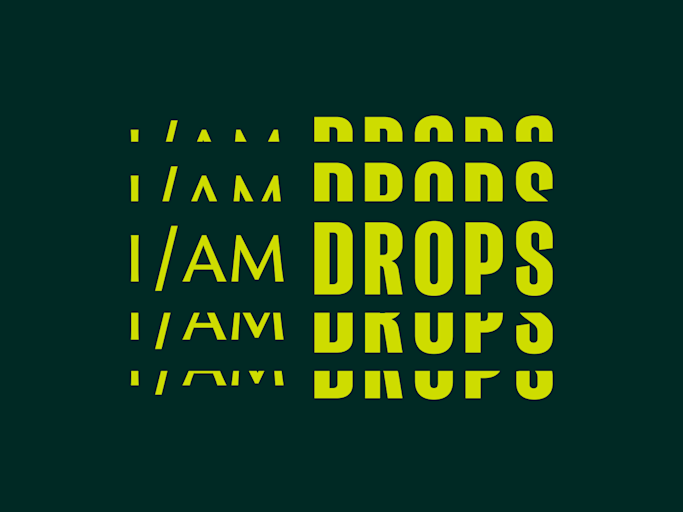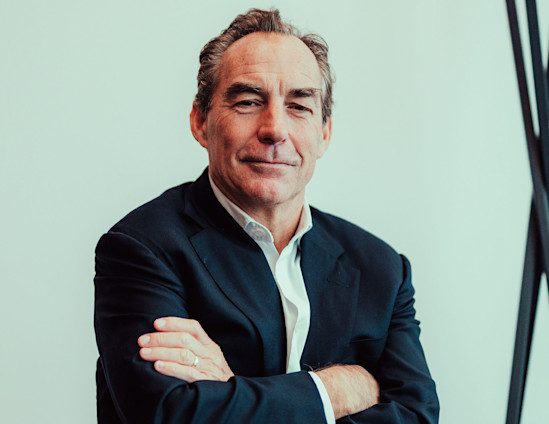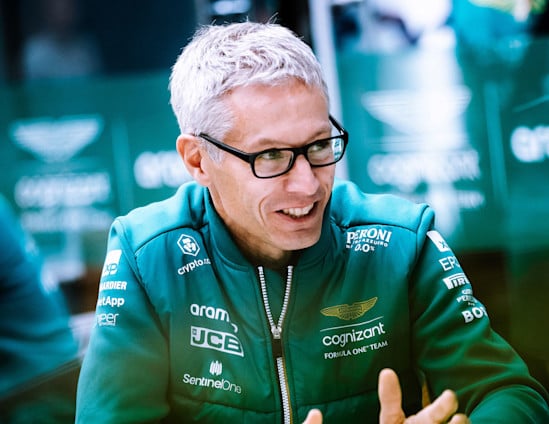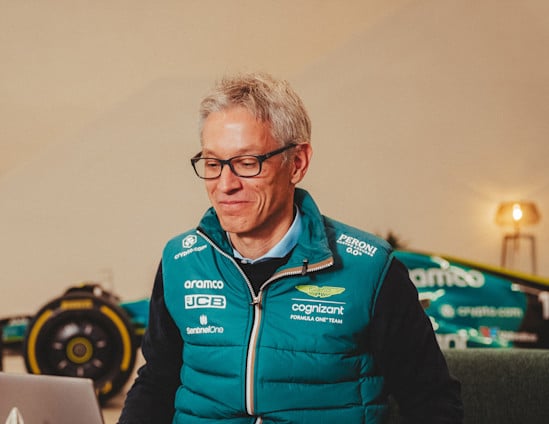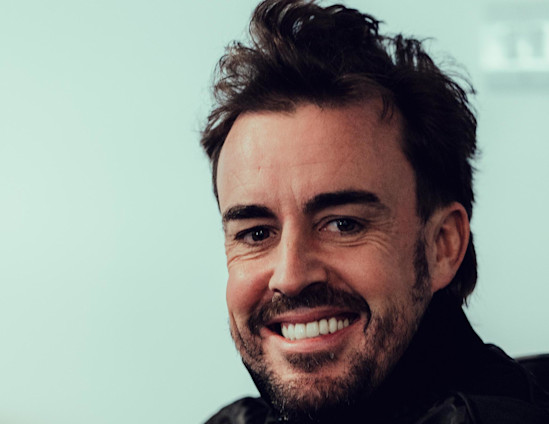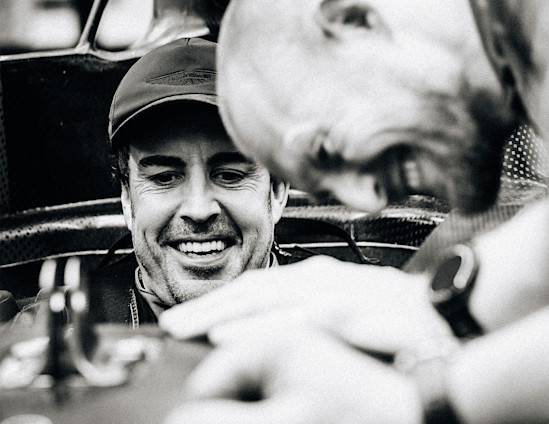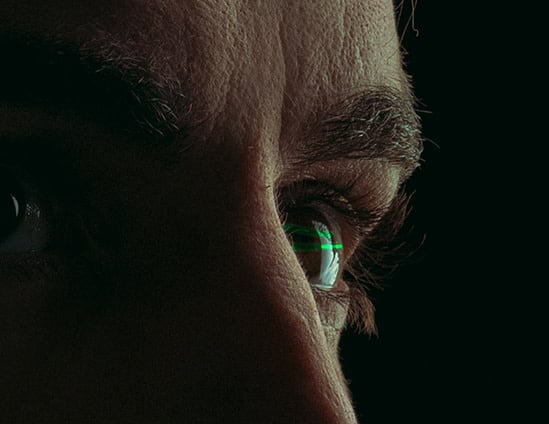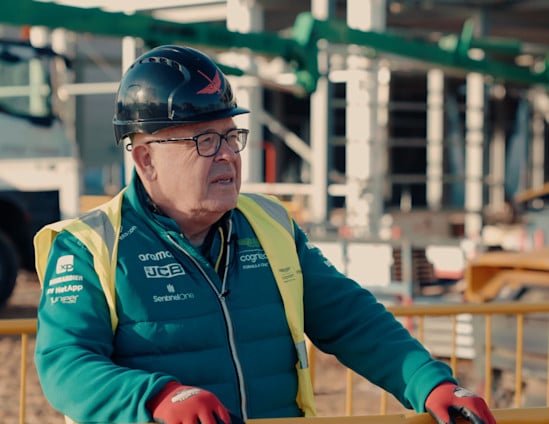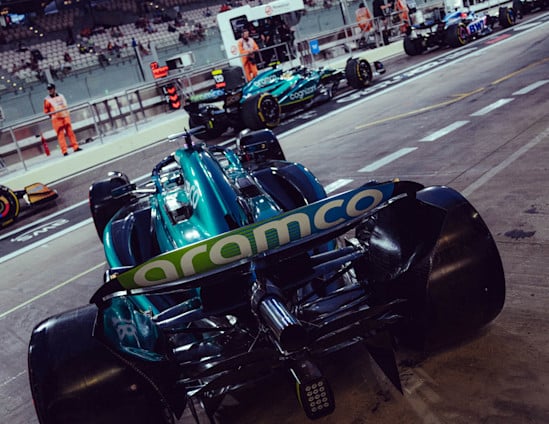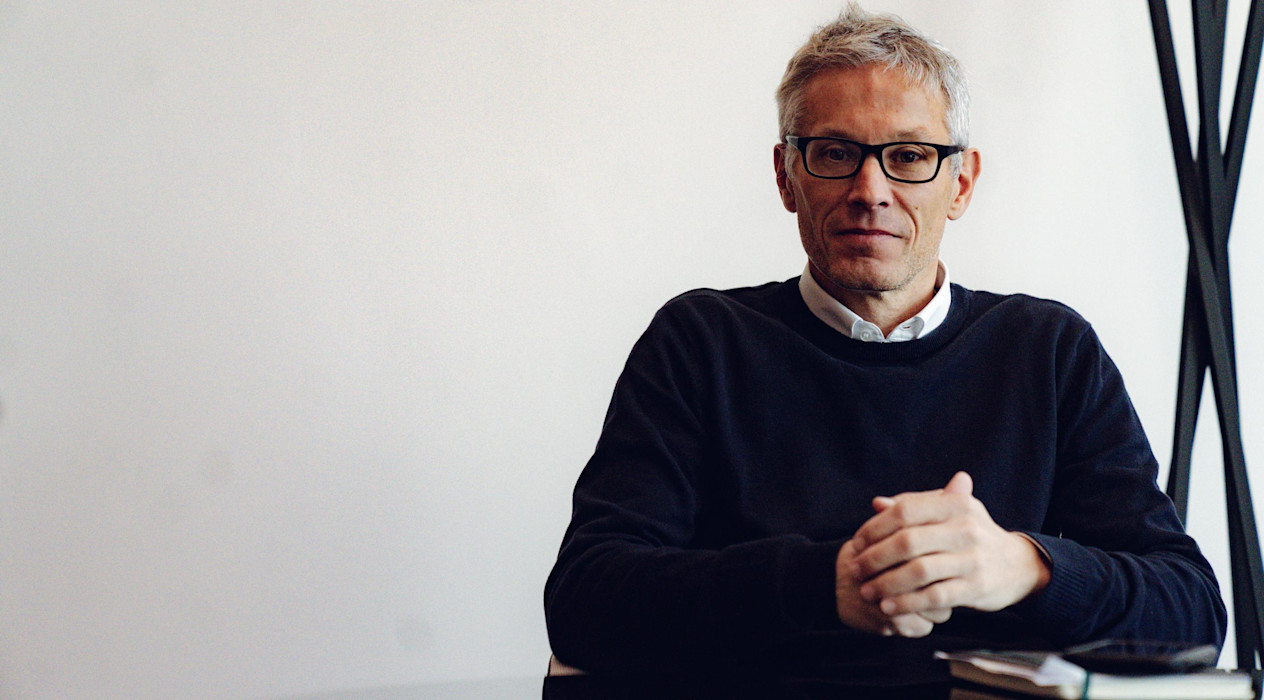
From underdogs to fighting with Formula One's established elite, Aston Martin Aramco Formula One Team has a focused ambition to compete at the pinnacle of motorsport. Here, Team Principal Mike Krack reveals the steps to make that ambition a reality.
Motorsport, by definition, is a highly competitive industry, and Formula One is easily the most competitive championship of them all. Looking at the development trends over the last few years, the grid is getting closer. You have to be at your best, all of the time – and even that's no guarantee of success. Have a week where you're even slightly off, you lose.
If you don't follow the sport closely, it's worth looking at what that means. There are 10 teams in Formula One, each designs its own car and each brings a new car every year. In the first qualifying session of 2023, the fastest team lapped Bahrain International Circuit in a time of 1m30.993s. The slowest team in 1m31.652s.
Teams of hundreds of people laboured in isolation to produce 10 different prototype cars, and across 5.412km of desert track, the performance gap was 0.7 per cent. Go to the corresponding qualifying session at the very end of the season, and the gap between fastest and slowest is still 0.7 per cent – but between two different teams.
These margins are so very small that anything less than perfection leaves you walking away from a racetrack with less than you hoped to achieve. Getting a good result – which in this context means delivering the maximum result our car is capable of delivering – requires everybody in the team to be focused 100 per cent on delivering their part of the operation.
If a trackside mechanic or engineer lacks hyper-focus, we lose; if someone in the design department, manufacturing, quality control, or any one of 20 other departments isn't hyper-focused, we lose. My job is to make sure we don't lose.
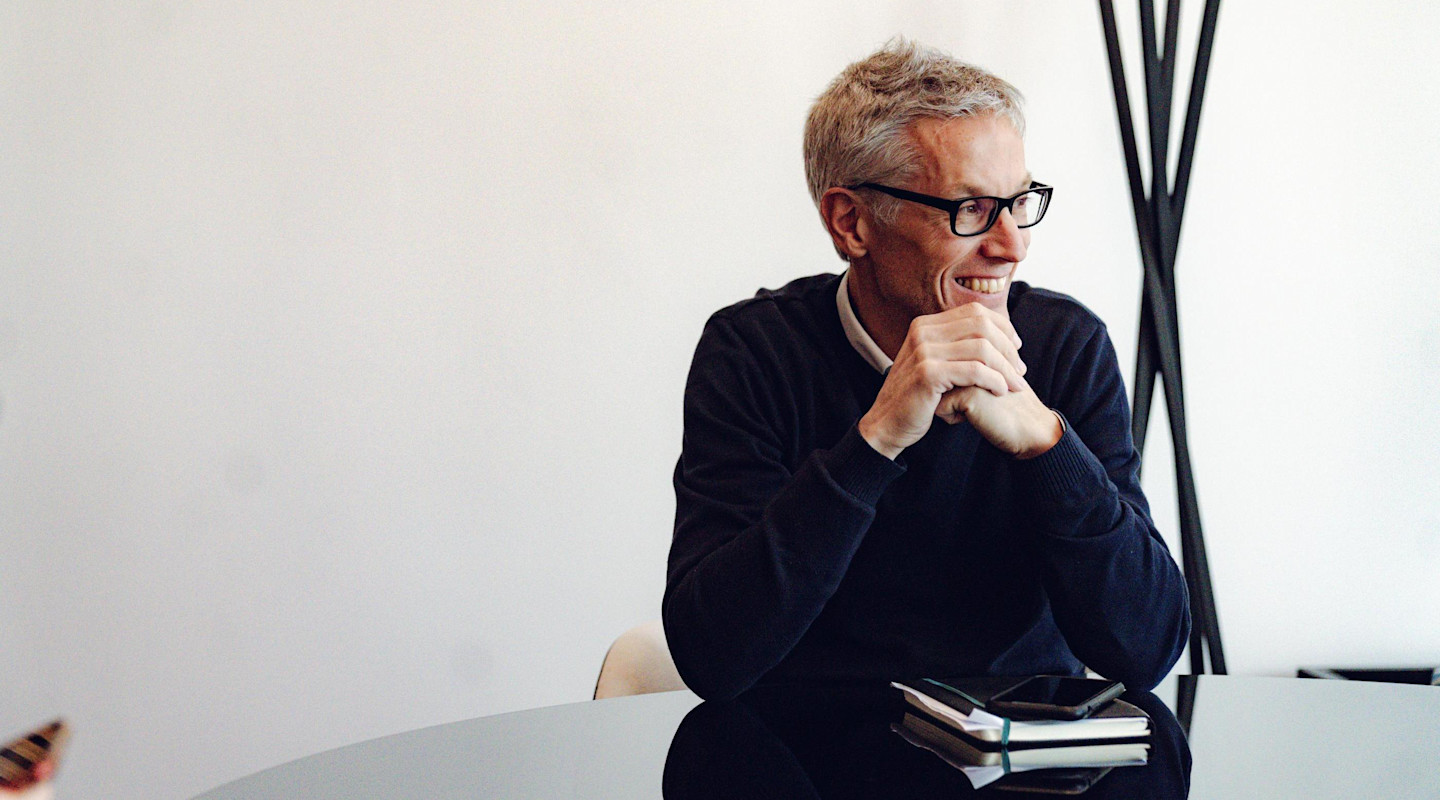
Our business only works with empowerment
As part of our senior leadership team, I spend a lot of time providing definition: where we should focus our attention – usually, the areas that are going to deliver most performance – and what's expected of each area of the team in terms of contribution. Once this is done, the most important part of the task is to trust in the people we've put in place. You try to identify strengths and weaknesses, but you can't micromanage.
For a team like ours, attempting to take another step forward to establish ourselves in the leading pack, the most important thing is to have a plan. Over the last three seasons, we've seen a lot of investment in new facilities and a recruitment drive to make use of them – and it's tempting to want everything to happen all at once – but it doesn't work like that.
We can't rush this building phase. A certain level of consistency is super-important. Where we've empowered people, it's important to give them time and trust, allow them to build up structures and become comfortable in their teams. Patience is very important – though that's a very rare thing in Formula One.
Our team – like every other – is filled with specialists. The job of senior management is to clear their path. We can give them targets, make sure they have the resources to achieve those targets and have an environment in which they are able to focus on the job, free from distraction. What we're not here to do is tell them how to do their job.
Lead by example
Aston Martin Aramco Formula One Team is growing fast. It's transforming into a bigger, more competitive organisation, capable of running at the front of the F1 grid. And this is not just about infrastructure, resources and headcount. It's also about mindset.
It's very easy to be an underdog. This team has enjoyed that status for years. It did good things with limited resources and enjoyed its occasional triumphs all the more because they were so very rare. It's easy because there are no expectations.
At the other end of the scale, there are serial winners in F1, and they have the hardest job because they are held to an incredibly high standard. We're on a journey to become one of those teams, and if we're honest, we still have a huge hill to climb. We did not record any podium finishes in 2022 but had eight last year. That provides a degree of confidence – but also raises the level of expectation. We have to learn to cope with that level of expectation, live with greater scrutiny and stay focused.
Creating a winning mindset starts from the top; I recognise that I have a responsibility to set a good example. Out on the pitwall, you're very firmly in the public gaze and your body language affects perception. It's important to not get too high when things are going well, or too low when they are not. Especially the latter. If the team sees me creeping around like a beaten dog, that impacts morale. When it hasn't gone well – and sometimes it won't – you have to square your shoulders, raise your chin and project an attitude that says we're going to dig ourselves out of this and fight back.
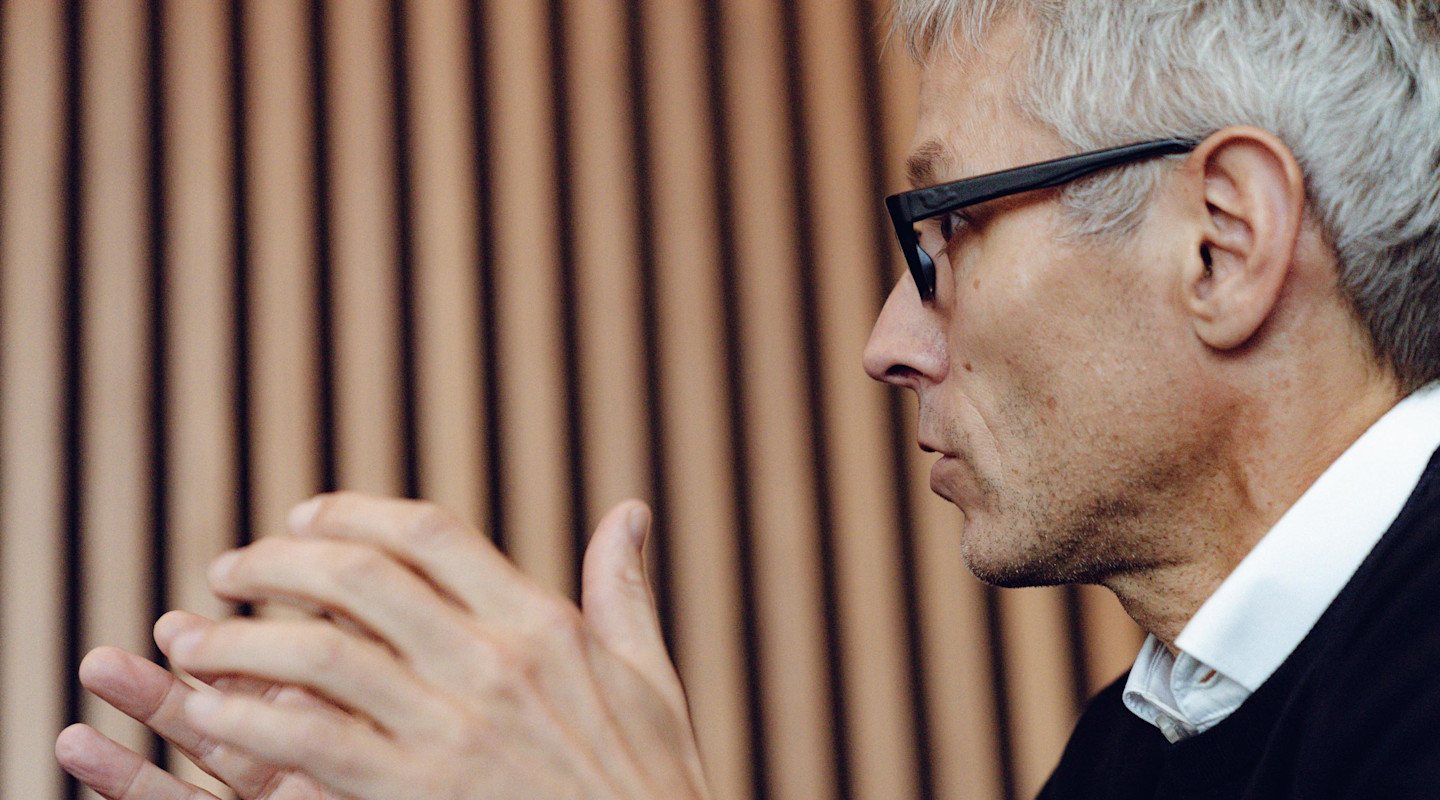
Embrace distractions but re-focus quickly
It's very easy to lose focus in Formula One because there are a lot of distractions. Our pitstop crew, for example, sit in the garage watching the race, which puts them in a very different state of mind to what would be the case if they were isolated from everything going on around them. They're going to be more tense when our car pits from a potential podium position than would be the case when it comes in from P15. Ideally, you need to have them able to focus on the job at hand, divorced from the context.
It's the same with the people – myself included – making decisions on the pitwall. The positions out on track impact your reasoning and introduce emotion, and that's dangerous because you just can't focus if you're emotional. It’s difficult to decouple and make decisions without emotion – but it's often the difference between winning and not winning.
The best antidote is experience. Serial winners have fewer nerves and are less emotional. They are less distracted by context. In the absence of that experience, the best approach is to acknowledge distractions exist, make sure people have the opportunity to embrace those distractions, and work very hard to ensure the team has the ability to re-focus quickly when it needs to get down to work.
There is an inherent contradiction in all of this. We want people to be hyper-focused, able to do their jobs dispassionately and free from distraction – but at the same time we want to be a team of passionate, committed and emotionally involved people.
We don't want to turn people into robots. If we had 22 robots doing a pitstop, who gains? Not the fans, not the crew, who thrive on the adrenaline of performing well. Ultimately, this is a sport and people are supposed to enjoy it – but it's a difficult balancing act: bringing passion to what you do, but when it's time to execute, being capable of being dispassionate.
Find the right people, not just the right skills
We're in the fortunate position of being in a very attractive industry, having a highly recognisable brand, and a very ambitious project that people want to be a part of, which helps us to recruit the best and the brightest – but beyond this, building a winning team is about finding people who are the right fit.
Finding a candidate with the right skills isn't enough. We have to find the right person. Many candidates come to us very well educated, and often with an outstanding skillset – but what we need is the person who combines that with the teamworking capabilities that make F1 tick. Emotional stability is important, embracing our culture is important, and handling the pressure in an ultra-fast-paced environment is very important. It's a sport for level-headed individuals who are calm in high-pressure situations.
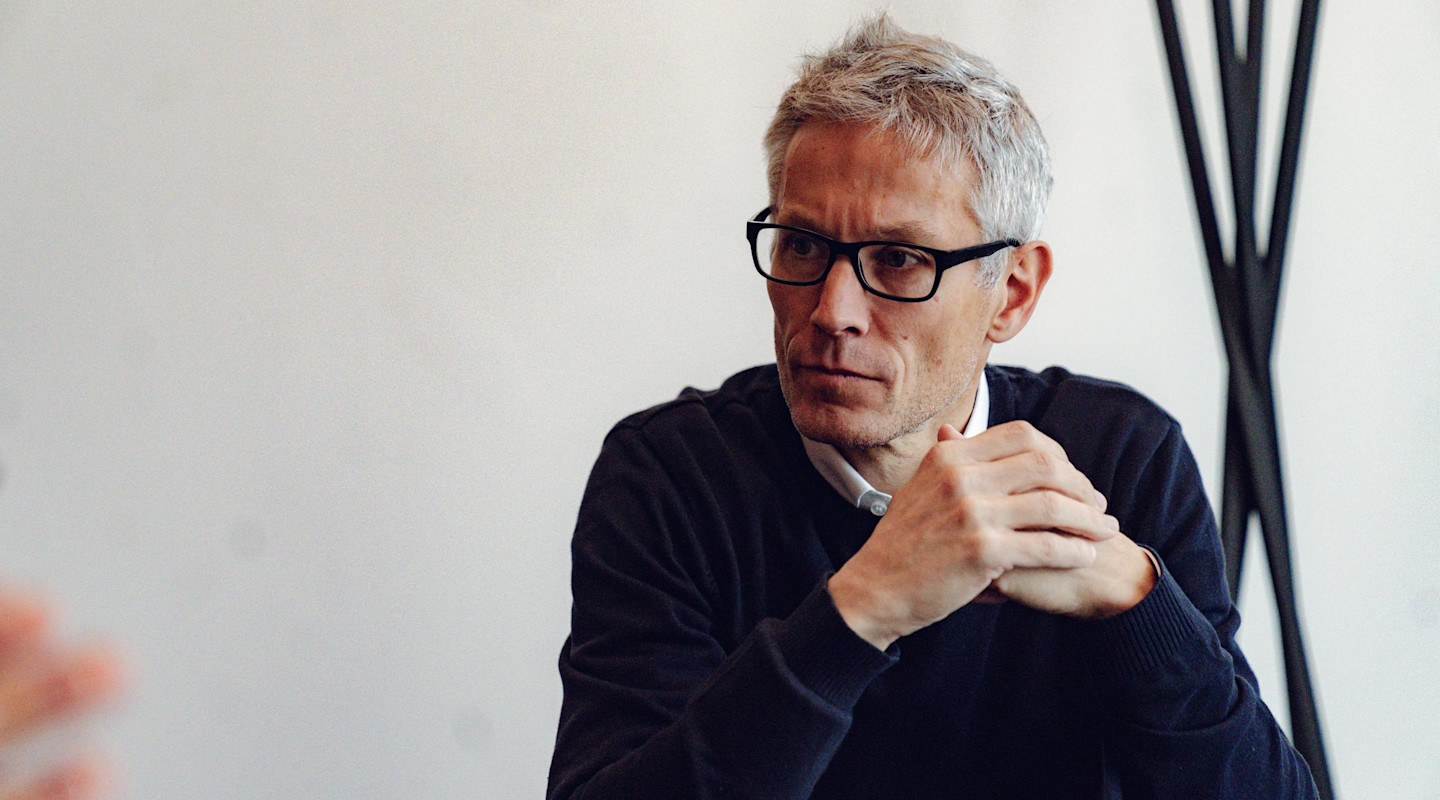
Create an environment that fosters innovation
Ours is an industry that thrives on innovation. Most industries claim this – but for F1 it's easier to make the case, when virtually every component on the car is redesigned across the course of a nine-month season. There's a wealth of evidence that suggests innovation is only possible when you create safe environments and promote a culture that encourages people to pursue new ideas and try new things – even if they don't work out. Overly stressed people are not creative. They will execute, but they won't innovate.
We need to provide the sort of environment that allows people to be innovative. Our new AMR Technology Campus features plenty of open spaces and light, and forums to discuss and propagate ideas, to encourage this – but when people are in the right frame of mind, they are just as likely to do their best thinking in the shower or the car. We need to have the best tools and always be at the forefront of technology – but this is a given. Over the next few years, developing the right environment is going to be a key battleground for the sport.
Outcome, not output
For two weeks in August and one week in December, virtually the entirety of the F1 community goes on vacation: these summer and winter shutdowns are an enforced break. Were it not for this, there would be a temptation to work 365 days of the year, and plenty of people would never take a day off, convinced that any time away from their desk is simply handing an advantage to the competition. This is a mentality we work hard to discourage – because the job is not about output, it's about outcome.
This is an interesting time for Formula One. A cost cap came into force three years ago, putting a ceiling on how much each team could spend. Over the course of this decade, that will level the playing field: everyone will have the same spend on tools and similar staff numbers. It's going to be a sport where the teams that can use those tools with the greatest efficiency and get the most out of their people, will get the results.
For this team, we remain hyper-focused on realising our ambitions on and off the track.
Amplify your fan experience
From exclusive collabs to once-in-a-lifetime prizes, I / AM DROPS is a new series of unique and ultra-limited moments and fan experiences.
Sign up for I / AM or sign in to unlock.
